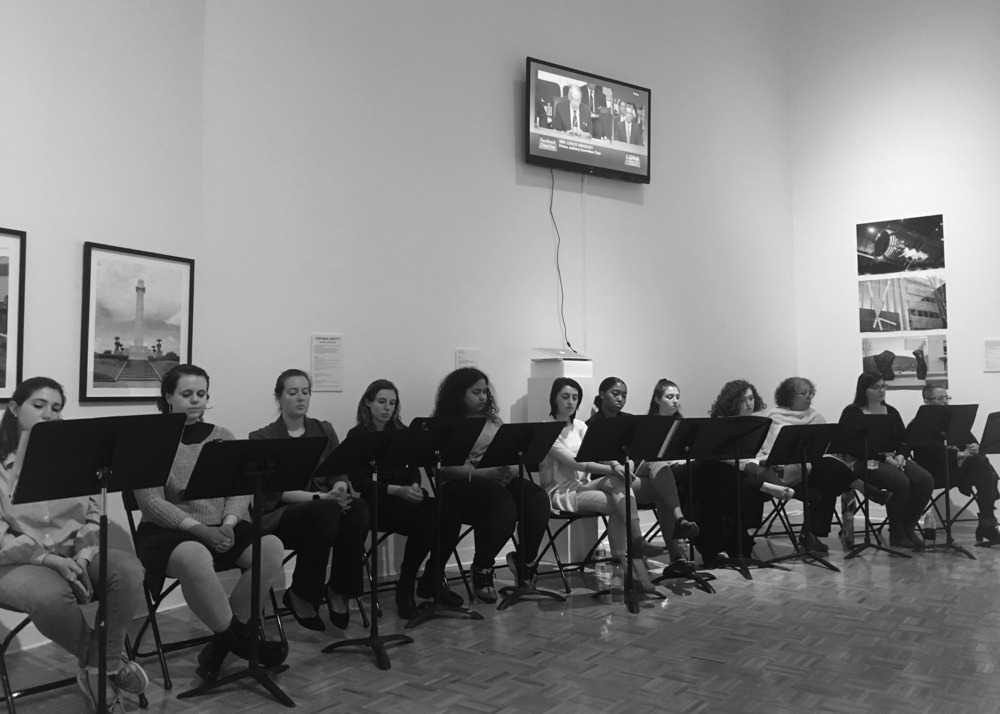
PUBLIC DISCOURSE
first performed on April 10, 2019
Kresge Gallery, Ramapo College, Mahwah, NJ
performed twice in 2019
PETER A. CAMPBELL
Angelina Aragona, Rachel Budin, Luissa Chekowsky, Emyah Crisostomo, Grace Diaz, Neriko Doerr, Alana Ferrone, Sarah Goldman, Caroline Harvey, Alyssa Jasuale, Valeria Koutmina, Lisa Lutter, Ryan McGilloway, Ashlee Morel, Beba Shamash, Sam Simone, Amanda Steuernagel, Deanna Venezio, Marta Vides, Christina Balkovic Wolfe, Dani Zazoni
Beacon, NY
peteracampbell.weebly.com
PUBLIC DISCOURSE
PETER A. CAMPBELL
Mark Zuckerberg’s congressional hearings in April 2018 were modern day Aristophanic performances, with the archetypes of old comedy—stingy, out-of-touch, (largely) old, (largely) men who know everything grumping about idea-filled newcomers who think they know everything about everything. It was a live, public reality-TV farce that was at the same time a profound satire of our modern world: the hubris and certainty, the lack of accountability, the privilege, the entitlement, the manipulation, and lies that our corporations and politicians tell us, feed us, repeat for us, take from us, claim for us, eat from us, get from us, give to us. It was a representation of our narcissism that mistakes wealth for freedom and transparency for truth; the circus with so many showmen that it’s flattened into something we can barely muster the energy to care about anymore.
“PUBLIC DISCOURSE” was a performance installation over two days in the art gallery at Ramapo College that included a slow-motion video of the hearings on a video screen behind a live chorus reading the transcripts. By using this form, we hoped to reveal the performative construct of the king of social media being interrogated by our elected representatives, the putative meeting of politics with the most influential social platform in history, and to allow the discourse that ensued to be heard and read. But I also wanted us to hear it in other voices, in different voices, in melodious and harmonious voices, in choral voices and singular voices and scratchy voices and high voices and nasal voices.
For the 5th century BCE Athenians, old comedy was a genre that allowed for political satire and discourse about current events and was done in the center of the polis, for the public. Our chorus, performing on the one-year anniversaries of the hearings, April 10 and 11, 2019, was more blank parody than satire, however, as we put the form of the hearing into a chorus of women and kept the structure while changing the voices. This kind of parody was meant to help us hear again the text for the first time, to take it out of its original context, and put it forward as something to be interrogated in form and content.